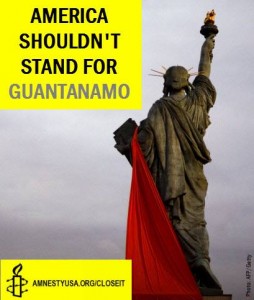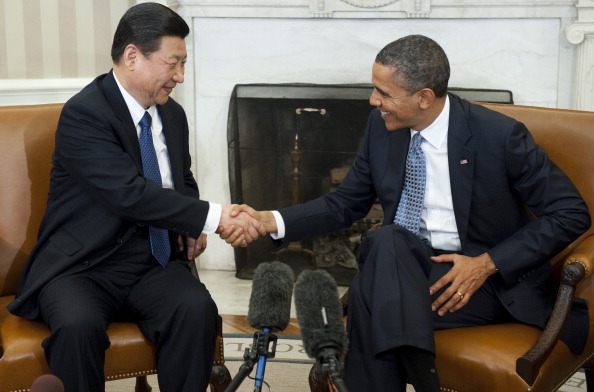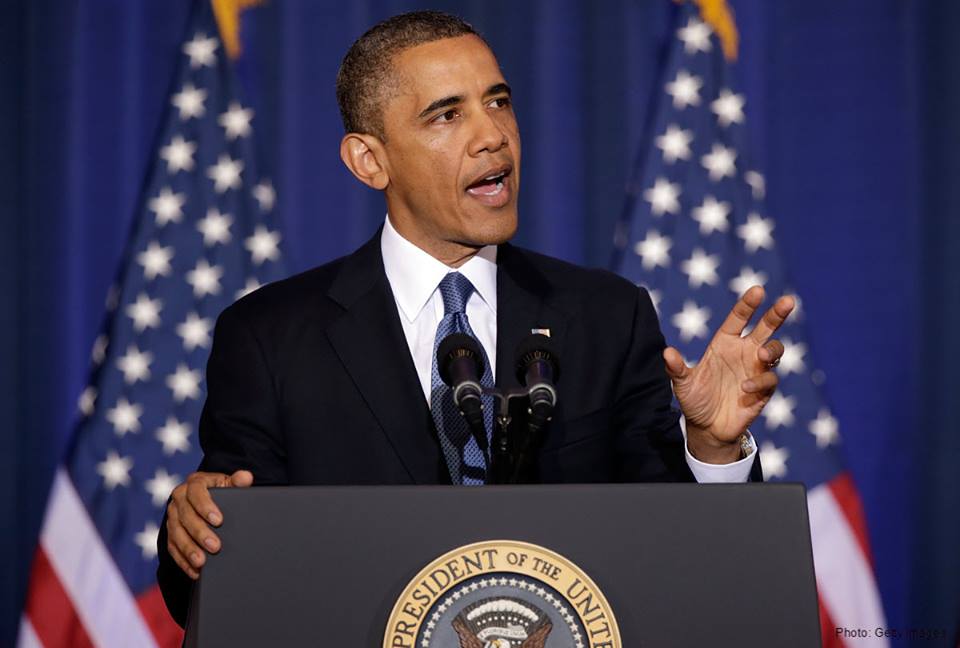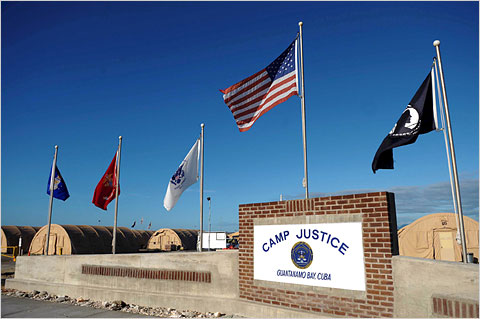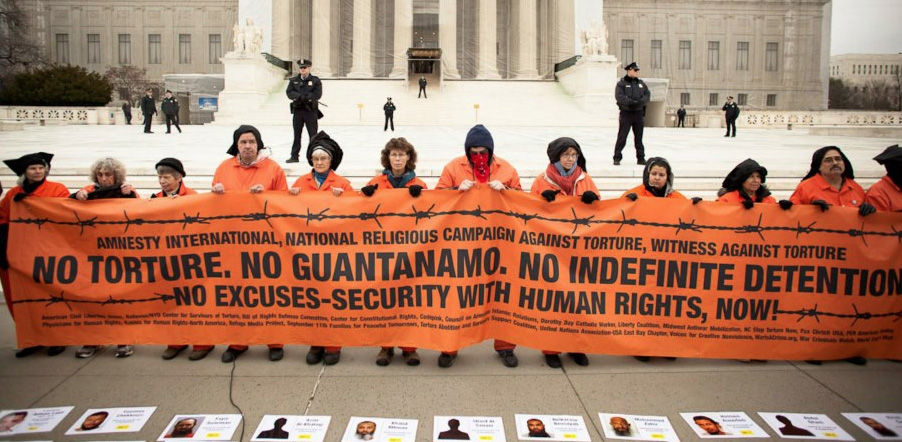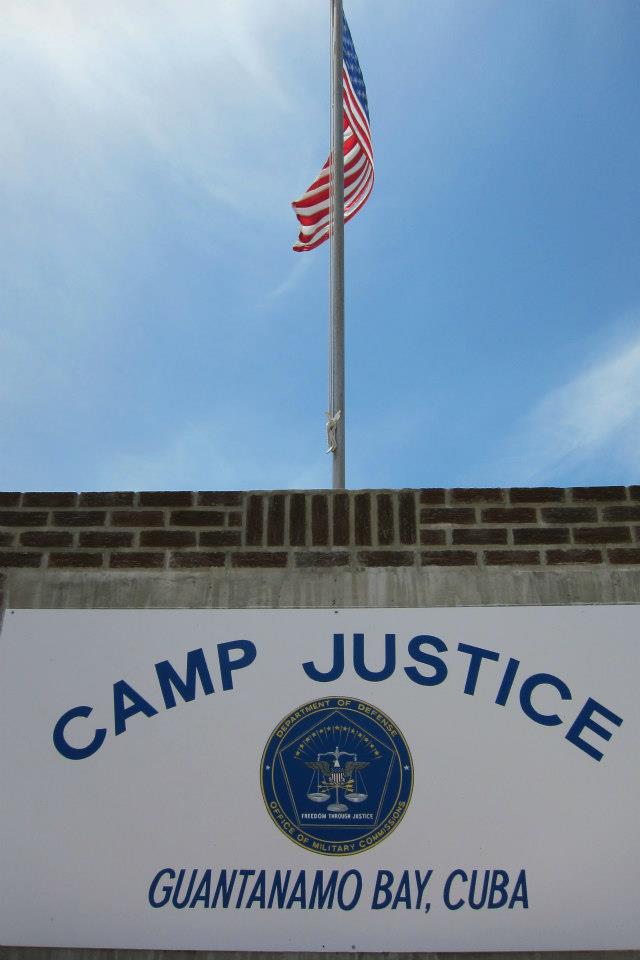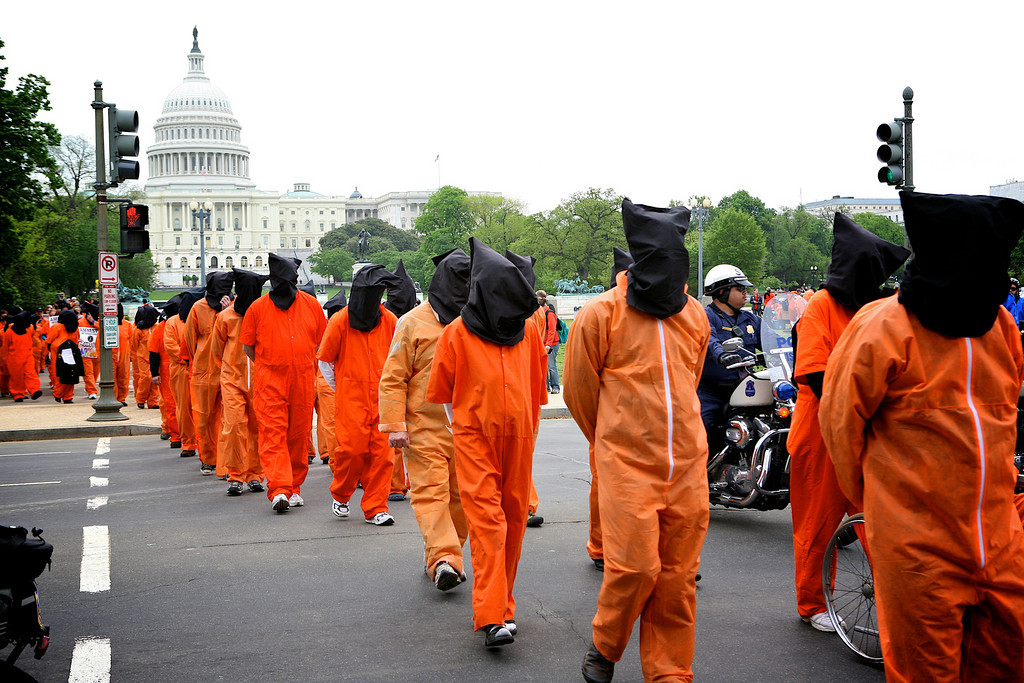
Activists demonstrate against indefinite detention and unfair trials at US Naval Station Guantanamo Bay (Photo Credit: Shawn Duffy).
Angry. That’s how I felt when President Obama signed the 2013 National Defense Authorization Act (NDAA) into law, despite containing terrible provisions that run afoul of human rights standards and have been used to justify indefinite detention at Guantanamo.
Well, the NDAA is back in the House of Representatives this week and the bad Guantanamo provisions are in it again. Will you join me in demanding that Congress support the human rights of all people?
